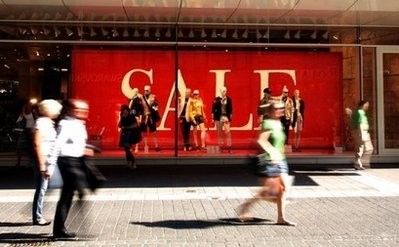FRANKFURT (AFP) – The German economy got help from exports, investment and domestic consumption to post record second-quarter growth, detailed data released Tuesday by the national statistics office showed.
Dynamic activity in Germany contrasts with a loss of momentum in the United States, the world's biggest economy, and a slowdown in number two China.

The Destatis office confirmed an earlier growth estimate of 2.2 percent from the previous three-month period, an all-time high for reunified Germany, and noted that household consumption had contributed to the result.
It was the first time in a year that consumer spending showed an increase, and could ease pressure on Germany, which has been criticised by some EU leaders for relying too much on exports to drive its economy.
"If German demand picks up and spills over to other countries, it could help reduce imbalances in the eurozone," European Economic Affairs Commissioner Olli Rehn said Tuesday in the business daily Handelsblatt.
"The German consumer sent a strong sign of life ... after three consecutive drops, this was the first private consumption growth since the end of the car scrap scheme" in 2009, ING senior economist Carsten Brzeski said.
"The recovery seems to be more self-sustained than some observers had thought," he said.
Destatis also confirmed a 12-month growth rate of 4.1 percent in the second quarter, and the head of the German Chamber of Commerce and Industry (DIHK) said it now expects the economy to grow by a record 3.4 percent this year.
In October, the government in Berlin will revise higher its previous 2010 forecast of 1.4 percent growth, officials have indicated.
Businesses are investing again and "even consumption is accelerating thanks to favourable developments in the labour market," DIHK head Martin Wansleben told the weekly Der Spiegel.
The Destatis data showed household consumption gaining 0.6 percent in the second quarter, the first increase since a rise of 0.3 percent in the same period a year earlier.
The DIHK full-year forecast is higher than a revised 3.0 percent forecast issued by the German central bank, and would see the economy tie the growth record it set in 2006.
Germany suffered its worst post-war recession last year but has bounced back amid sustained demand for its automobiles, chemical products and machine tools.
Destatis said "capital formation and foreign trade contributed most strongly to the economy recovery."
Capital formation, or investment, increased by 4.4 percent in machinery and equipment and by 5.2 percent in construction from the previous quarter.
Government spending also increased by 0.4 percent, but Berlin will tighten its belt next year to meet a constitutionally mandated decrease in its public deficit and debt.
"The next months will show the real face of the German economy," Brzeski forecast before adding: "The fundamentals are in place to keep the growth engine running smoothly."
Counterpart Alexander Koch at UniCredit said the fact that "investment and consumption contributed substantially to the latest vibrant performance indicates an increasingly broad-based upswing."
























